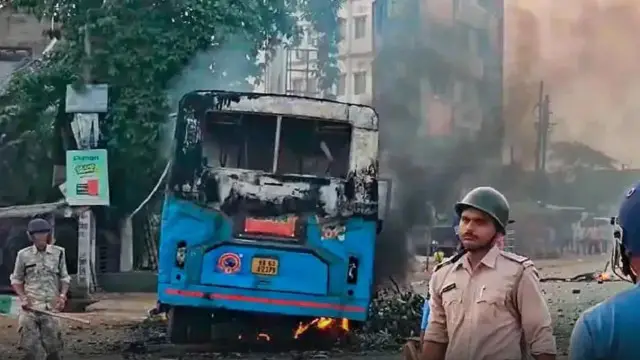MGNREGA under pressure: Congress pushes for wage hike to Rs 400 amidst indifference claims
Aadhar Based Payment Bridge Systems (ABPS) must not be made mandatory, and number of workdays under MGNREGA must be increased from 100 to 150 days, they also adde

Accusing the Modi government of perpetuating a policy of indifference to the plight of MGNREGA workers, the Congress on Monday demanded that the Union Budget must increase MGNREGA wages and the Aadhar Based Payment Bridge Systems not be made mandatory. The opposition party demanded that MGNREGA wages be increased with the goal of hitting Rs 400 per day as a national minimum wage.
Call for a Standing Committee on Wage Rates
In a statement, Congress general secretary in-charge communications Jairam Ramesh said MGNREGA wages cannot be set by the arbitrary whims of the government. He said a Standing Committee must be established to evaluate the need for changes in the wage rate. The Aadhar Based Payment Bridge Systems (ABPS) must not be made mandatory, Ramesh said. He also put forward the demand that the number of workdays under MGNREGA must be increased from 100 to 150 days.
Criticism of Modi's Attitude Towards MGNREGA
"One of the earliest indications of Prime Minister (Narendra) Modi's uncaring attitude and shortsightedness was his mockery of MGNREGA on the floor of Parliament in 2015," Ramesh said. In the years since, especially during the COVID-19 pandemic, MGNREGA has conclusively demonstrated its utility as one of the few social security interventions that the government can execute, he said. From a pre-pandemic total of 6.16 crore households requesting work under the scheme in 2019-20, the numbers jumped by 33 per cent to 8.55 crore in 2020-2021, he said.
MGNREGA as a Lifeline During Crisis
For these crores of families, MGNREGA was the only lifeline amidst the chaos of the government's unplanned lockdowns, Ramesh said. "Amidst an ongoing economic slowdown, there continue to be 9.31 crore active workers that are employed under the programme as of January 2025. Close to 75 per cent of these workers are women. Despite this reality, the government continues to perpetuate a policy of indifference to their plight," he alleged.
Budget Allocations and Economic Recommendations
As a share of GDP, allocations to MGNREGA have been reduced to 0.26 per cent in 2024-25, Ramesh said pointing out that the World Bank recommends that at least 1.7 per cent of the GDP should be allocated to this programme. Of the budgetary allocations made to MGNREGA, estimates suggest that about 20 per cent of the budget is paid towards clearing dues from previous years, he said.
Real Wage Increases Fall Short
"The minimum average notified wage rate was increased by 7 per cent in FY25- at a time when Consumer Price Index (CPI) inflation is estimated to be 5 per cent. The real wage increase is therefore a miserly 2 per cent," he pointed out. "Between 2019-20 and 2023-24, close to 4 crore job cards were deleted. Meanwhile, only 1.2 crore job cards have been added in the last two years," Ramesh said.
Issues with Aadhar-Based Payment System
Estimates from one state suggest that 15 per cent of the deletions were wrongful and on January 1, 2024, the central government made it mandatory that all payments for MGNREGA must be through the Aadhar-Based Payment System (ABPS), the Congress general secretary said. However, 27 per cent of workers are ineligible for payment under the ABPS and their demand for work is not registered, he said, adding that many also lose their wages despite doing work.
Challenges with Attendance Registration
"The National Mobile Monitoring System (NMMS) is also required for workers to register attendance. However, glitches in the app, limited access to smartphones, and irregular connectivity have resulted in widespread prevalence of unregistered attendance, unrecorded work, and delayed wage payments," Ramesh argued.
Persistent Issues Raised by Workers
During the Bharat Jodo Nyay Yatra, MGNREGS workers from across the country raised these issues at the Jan Sunwai held at Ranka, Garhwa District, Jharkhand on 14th February 2024, he recalled. Eight months later, these issues continue to persist - "a government-created human, economic, and institutional tragedy", he said.
Putting forwards the demands of the Congress, Ramesh noted several of them have already found place in the Demand for Grants Report (2024-2025) put forth by the Parliamentary Standing Committee for Rural Development and Panchayati Raj. "MGNREGA was envisioned as a demand-driven scheme, with workdays depending on individuals applying for work rather than government budgets.
Importance of Adequate Financial Provision
Especially given the worsening economic downturn, the Budget must make adequate financial provision to realise this vision," Ramesh asserted. Amidst a decade-long crisis of stagnant wages, an increase in MGNREGA wages as envisioned in the Congress Nyay Patra for the 2024 Lok Sabha Elections -- assumes renewed importance, he said.
Final Demands Ahead of Union Budget Presentation
The forthcoming Union Budget must increase MGNREGA wages, with the goal of hitting Rs 400 per day as a national minimum wage, Ramesh said. The Congress leader also demanded that wages must be paid within the statutory period of 15 days and any delay in payment must be compensated. In FY 2013-14, the minimum average notified wage rate for Mahatma Gandhi NREGA was Rs 155, while in FY 2024-25, the minimum average notified wage rate is Rs 279.
(Except for the headline, nothing has been changed by All India News Network in the PTI copy.)















